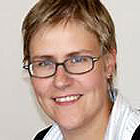“Golf, fishing, beauty therapy…micro-providers tend to think outside of the box. They deliver social care in different ways.”
The recent RSA research into micro-businesses has highlighted the potential for self-employed individuals and very small companies to be innovators, bringing new ideas to market.
Can the same mechanisms drive improvement in social care, a sector in which cash is scarce, staff turnover is high and the quality of service is often very poor?
At the University of Birmingham, we have looked at the innovative potential of micro-enterprises in the specific context of social care – delivering support to older people and people with disabilities. In a recent research study, drawing on 143 interviews with service users, carers and staff in 17 micro-enterprises and 10 larger organisations, we explored three distinct types of innovation: what innovations (what service is delivered), who innovations (who provides and receives a service) and how innovations (how a service is delivered).
We counted what innovations as types of social care support that differed from the ‘traditional’ offerings of day, domiciliary and residential care. We found many examples of micro-enterprises offering creative and holistic solutions to social care needs, especially for people with learning disabilities. These include power-pedalled smoothie bikes and football based support that use activities and exercise to enable social engagement and interaction. For older people, we found examples of micro-enterprises delivering new types of support, such as creative workshops in residential homes which enabled participants to showcase their artwork in a local library thereby creating opportunities for social engagement outside of the residential home setting.
The second type of innovation we identified is who innovation and relates to the people with which the organisations engage. Who innovations were displayed in two ways. First, micro-providers were able to support a more diverse range of people than larger care providers, including providing support to black and minority ethnic (BME) people in ways that were culturally appropriate. Second, some micro-enterprises had been set up by people who used services, especially people with learning disabilities. By empowering social care users to set up and run their own services, we found examples of community based organisations that were able to generate trust and shared understanding between the carers and people using the service.
Most of the what and who innovations were more oriented towards younger people with disabilities. For older people, it was how innovations offered by micro-enterprises that were particularly significant. How innovations relate to the process through which a service is delivered and were particularly evident in home based support, with care being undertaken in ways that deviate from the dominant time-and-task model. Instead services were more flexible and personalised to the needs of those who use them. This finding fits with the conclusion of the recent RSA report on The Second Age of Small that it is in relation to ‘intangible’ innovation that micro-enterprises can really excel.
People running micro-enterprises felt that ‘smallness’ allowed new ideas for care and support to be developed and implemented quickly in response to the needs of those they support, whilst similar ideas may be stifled by the layers of bureaucracy within larger organisations. As one of the staff running a micro enterprise put it, “What you find is in big organisations is that you have to go through so many hoops and barriers to do everything. If you’re a micro enterprise you can respond every minute to what the needs are”.
We are not saying that innovation is unique to micro enterprises; indeed some of the larger care providers had greater resources and networks that allowed them to invest in innovation more than the micro enterprises could. However, what we can conclude from the research is that ‘smallness’ within social care services is generally conducive to the ‘intangible innovations that we call how innovations. Micro providers are generally more flexible, personalised and have better staff continuity than larger providers, especially within the domiciliary care sector.
Our research also showed that micro-enterprises offered better value for money than larger care providers, since they had lower hourly costs and achieved better outcomes. Together, these findings confirm that the RSA is right to celebrate the power of small.
Kelly Hall is a Lecturer in Social Policy and Catherine Needham is a Reader in Public Policy and Public Management at the University of Birmingham. Catherine tweets as @DrCNeedham
Related articles
-
Think blockchain is all about Bitcoin? Think again
Benedict Dellot
A new book by Don and Alex Tapscott argues that blockchain could help shake up the sharing economy, push out middlemen, and make micro-entrepreneurs out of all of us. Benedict Dellot explores.



Be the first to write a comment
Comments
Please login to post a comment or reply
Don't have an account? Click here to register.